The Iran nuclear deal: can Joe Biden salvage it?
US joins EU Vienna talks as president seeks to deliver on key campaign pledge
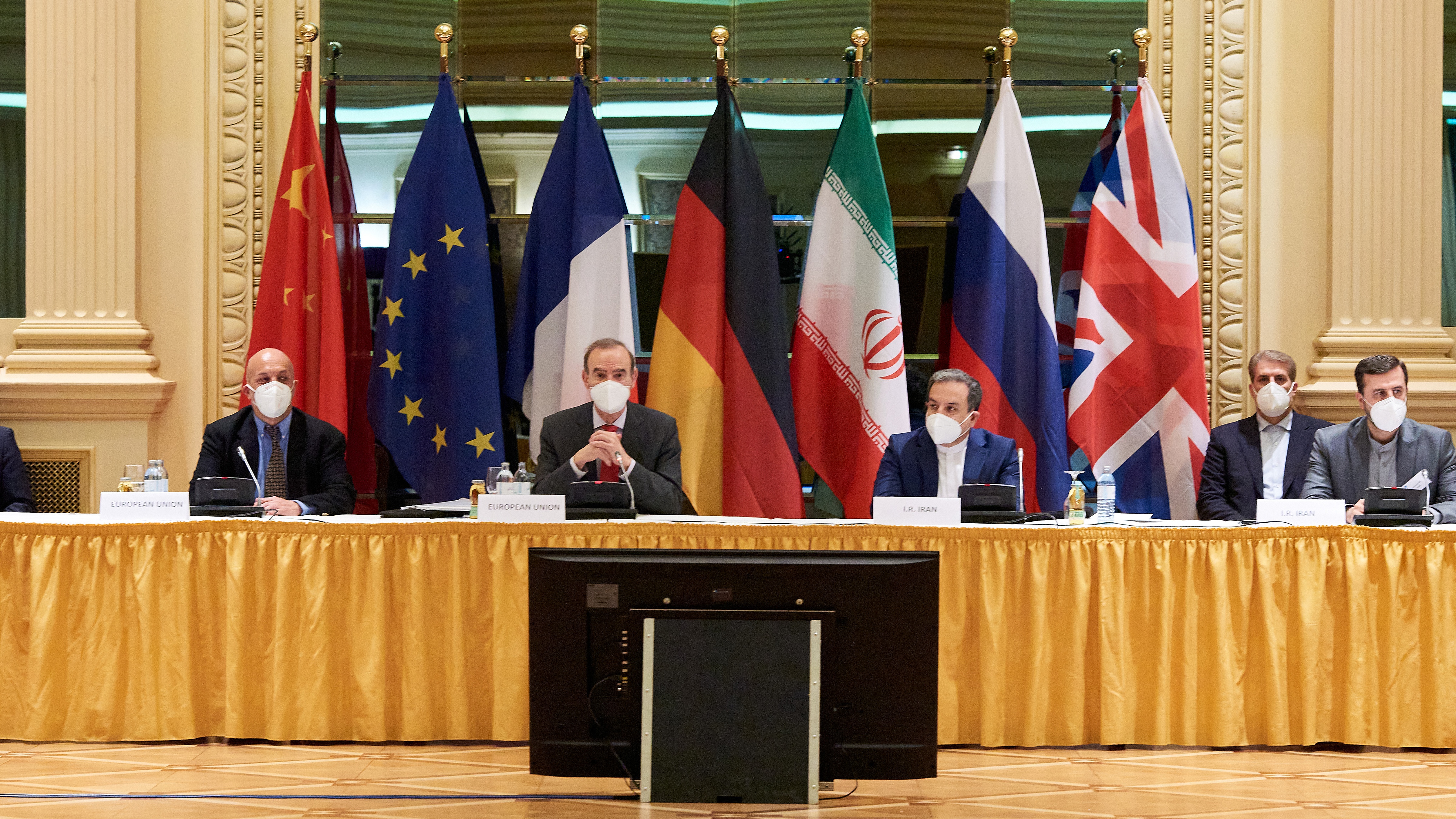
A free daily email with the biggest news stories of the day – and the best features from TheWeek.com
You are now subscribed
Your newsletter sign-up was successful
European diplomats were yesterday rushing between US and Iranian officials in Vienna as talks got under way to revive the 2015 Iran nuclear deal.
Breathing new life into the deal negotiated by his former boss, Barack Obama, is seen by Joe Biden as “the first potential thaw in diplomatic relations between Tehran and Washington” since Donald Trump withdrew from the accord in 2018, The Wall Street Journal reports.
US and Iranian representatives are not meeting directly, but working through European intermediaries alongside officials representing other signatories to the deal, formally known as the Joint Comprehensive Plan of Action (JCPOA), including Russia and China.
The Week
Escape your echo chamber. Get the facts behind the news, plus analysis from multiple perspectives.

Sign up for The Week's Free Newsletters
From our morning news briefing to a weekly Good News Newsletter, get the best of The Week delivered directly to your inbox.
From our morning news briefing to a weekly Good News Newsletter, get the best of The Week delivered directly to your inbox.
Both the Biden administration and Iran have said they want to re-enter the agreement, however “a carefully choreographed series of moves from Tehran and Washington would be required to make that happen”, Politico says.
The aim of the first talks, scheduled to last 10 days in the Austrian capital, is to “identify concrete measures” that the US and Iran “can take to return to compliance with the agreement”, the news site adds.
This includes “steps Iran would need to take in order to return to compliance with the deal”, Al Jazeera says, as well as “potential relief from US sanctions imposed on Iran for violating the agreement”.
Enrique Mora, a senior EU official overseeing the negotiations, described the joint commission meeting as “constructive” in a tweet sent after talks closed yesterday. Mora added that “there’s unity and ambition for a joint diplomatic process with two expert groups on nuclear implementation and sanctions lifting”.
A free daily email with the biggest news stories of the day – and the best features from TheWeek.com
Biden has pledged to restore the agreement by bringing Iran back into compliance with limits on uranium enrichment. But achieving a breakthrough is “further complicated” by presidential elections taking place in Iran in June, The Times reports.
Trump’s decision to pull out of the deal “badly undercut the position of Iranian moderates who supported it in the face of grave doubts from the regime and political hardliners”, the paper adds. Fears of the same thing happening again are likely to make Iranian officials keen to secure concessions from the US before any agreement.
US officials have made it clear that they do not “foresee any early breakthrough”, Al Jazeera reports, with State Department spokesperson Ned Price telling reporters on Monday that “we don’t underestimate the scale of the challenges ahead”.
“These are early days. We don’t anticipate an early or immediate breakthrough as these discussions, we fully expect, will be difficult”, Price added.
US officials also hope that the talks can be used as a springboard for “engaging Tehran on other issues of concern”, The Wall Street Journal says, including Iran’s missile programme, which is seen as “a threat to Middle East stability”.
The deal explained
The JCPOA was signed in July 2015 by Iran and six countries known as the P5+1. The countries are the United Nations Security Council’s five permanent members – the US, France, the UK, China and Russia – plus Germany.
The deal involved Iran agreeing to reduce its number of centrifuges – machines that enrich uranium – by two-thirds, while also reducing its stockpile of enriched uranium by 98% and limiting the stockpile’s level of enrichment at 3.67%.
Iran also agreed to give inspectors from the International Atomic Energy Agency (IAEA), the UN’s nuclear watchdog, access to its nuclear facilities. Prior to Trump’s withdrawal, the IAEA repeatedly found Iran to be honouring the deal.
Joe Evans is the world news editor at TheWeek.co.uk. He joined the team in 2019 and held roles including deputy news editor and acting news editor before moving into his current position in early 2021. He is a regular panellist on The Week Unwrapped podcast, discussing politics and foreign affairs.
Before joining The Week, he worked as a freelance journalist covering the UK and Ireland for German newspapers and magazines. A series of features on Brexit and the Irish border got him nominated for the Hostwriter Prize in 2019. Prior to settling down in London, he lived and worked in Cambodia, where he ran communications for a non-governmental organisation and worked as a journalist covering Southeast Asia. He has a master’s degree in journalism from City, University of London, and before that studied English Literature at the University of Manchester.
-
 How the FCC’s ‘equal time’ rule works
How the FCC’s ‘equal time’ rule worksIn the Spotlight The law is at the heart of the Colbert-CBS conflict
-
 What is the endgame in the DHS shutdown?
What is the endgame in the DHS shutdown?Today’s Big Question Democrats want to rein in ICE’s immigration crackdown
-
 ‘Poor time management isn’t just an inconvenience’
‘Poor time management isn’t just an inconvenience’Instant Opinion Opinion, comment and editorials of the day
-
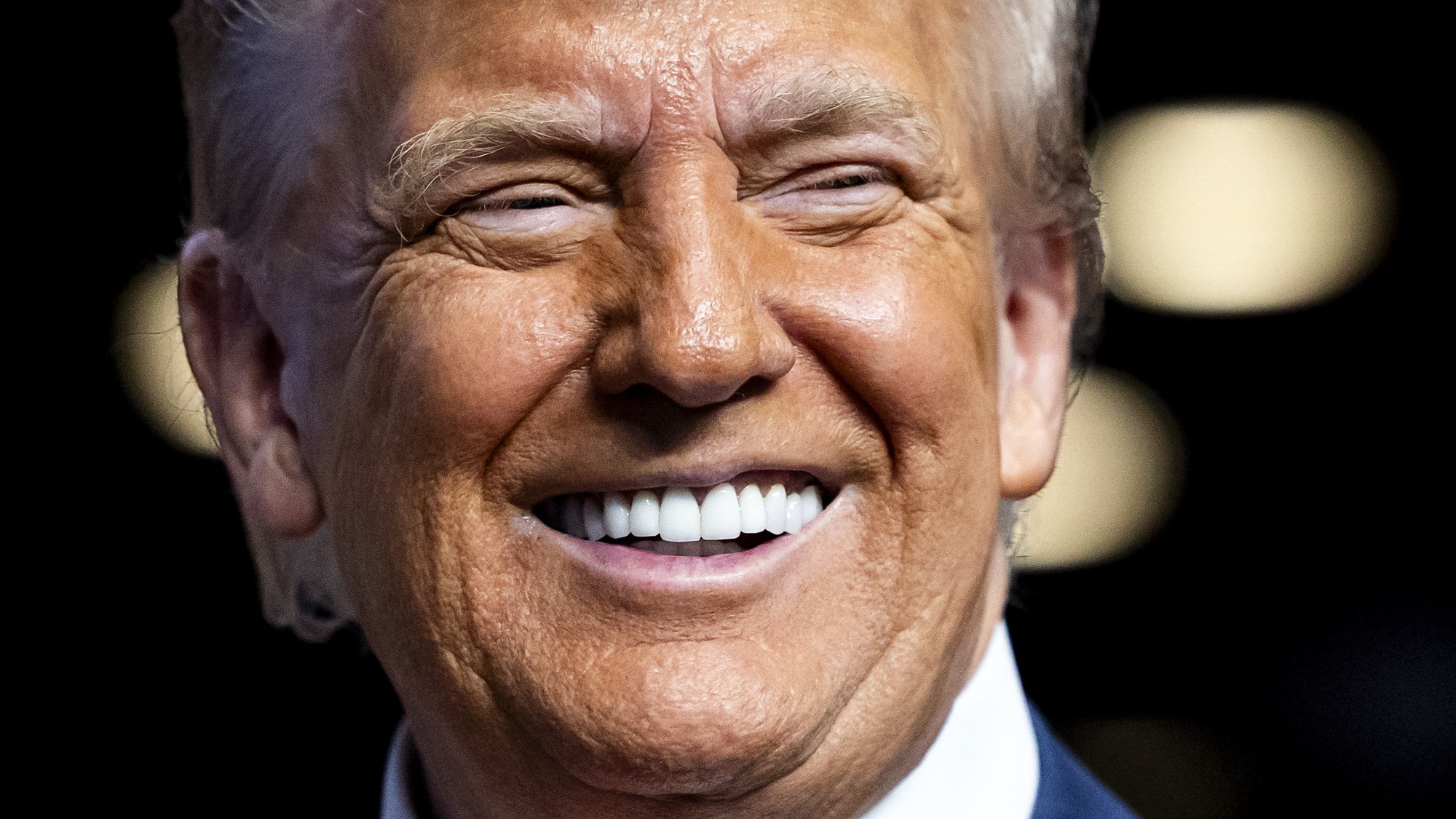 How long can Nato keep Donald Trump happy?
How long can Nato keep Donald Trump happy?Today's Big Question Military alliance pulls out all the stops to woo US president on his peacemaker victory lap
-
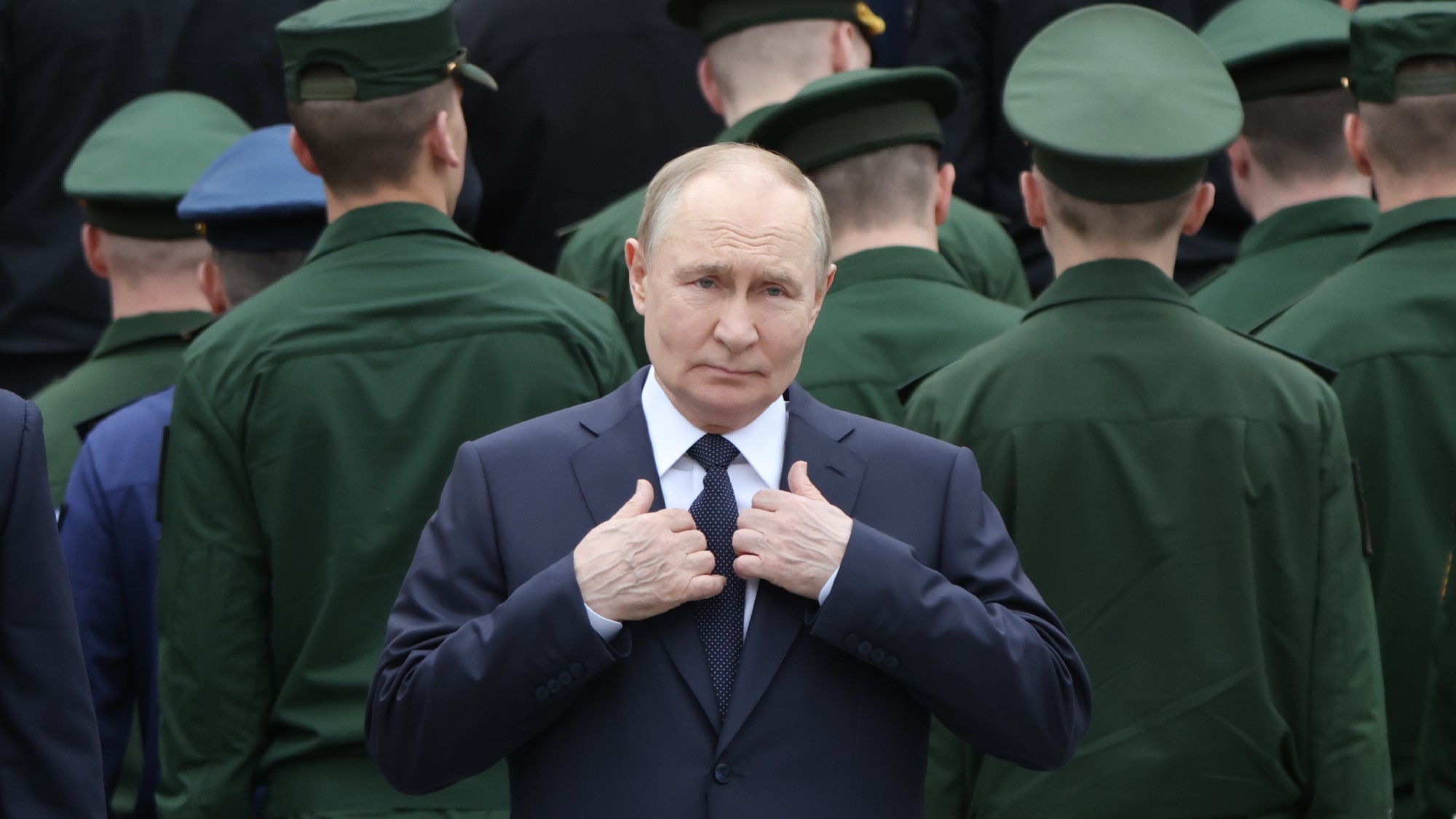 How far would Russia go for Iran?
How far would Russia go for Iran?Today's Big Question US air strikes represent an 'embarrassment, provocation and opportunity' all rolled into one for Vladimir Putin
-
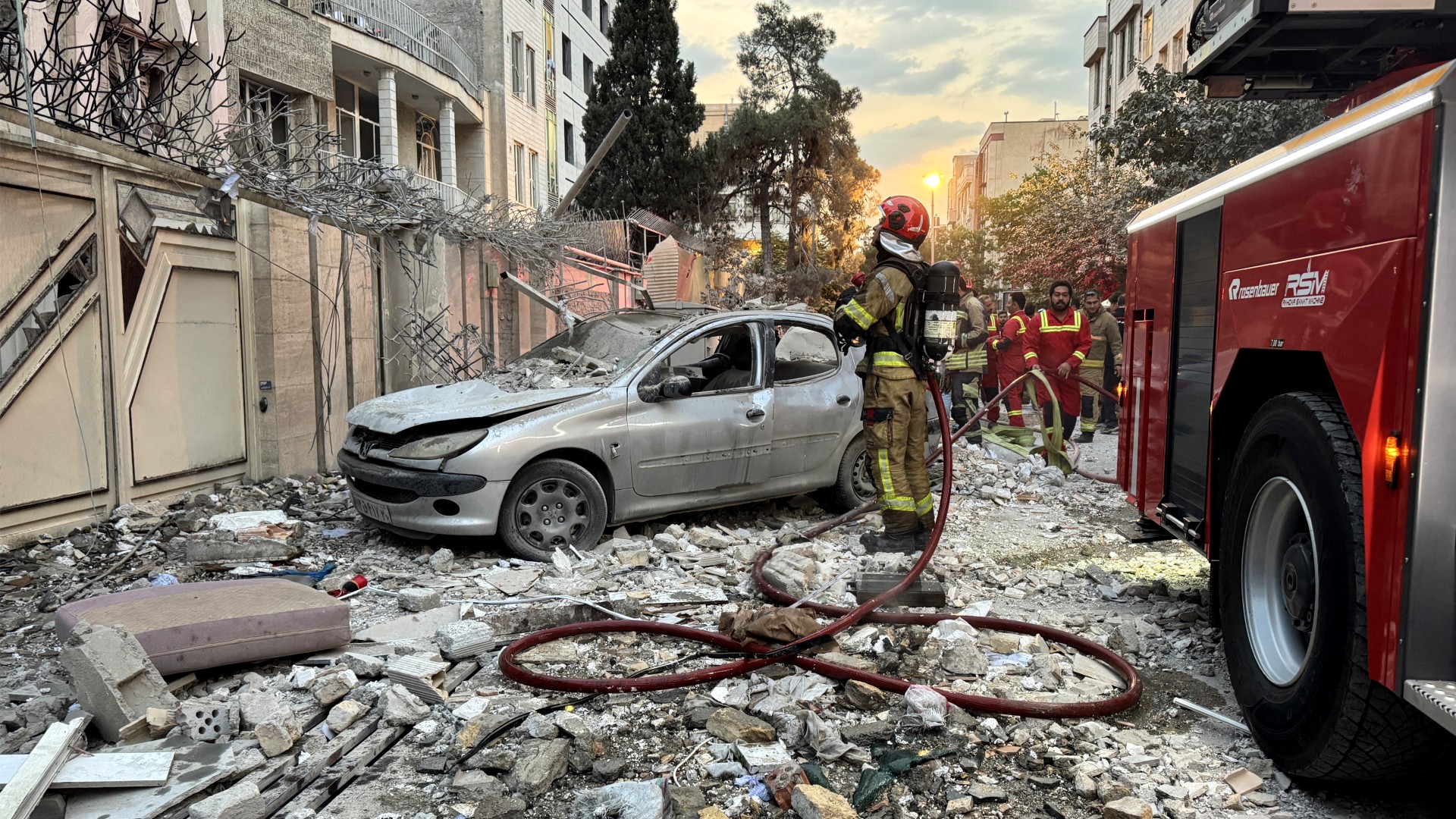 How the Israel-Iran conflict broke out
How the Israel-Iran conflict broke outThe Explainer Israel's strike on Iran's nuclear and missile programmes was years in the planning
-
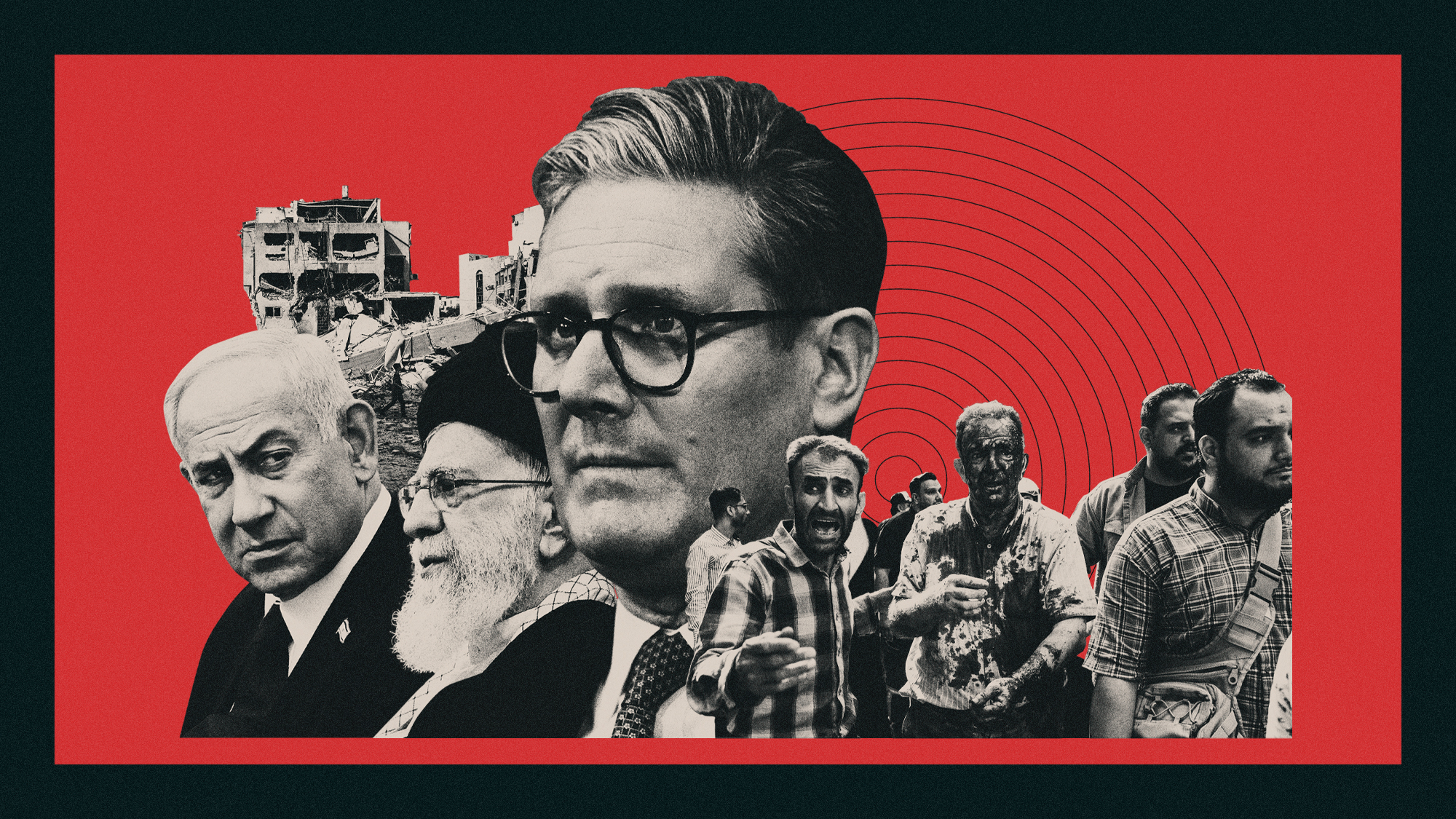 Will the UK get involved in the Israel-Iran conflict?
Will the UK get involved in the Israel-Iran conflict?Today's Big Question Keir Starmer is 'walking a tightrope' in helping Israel limit Tehran's nuclear capabilities without being seen to do so
-
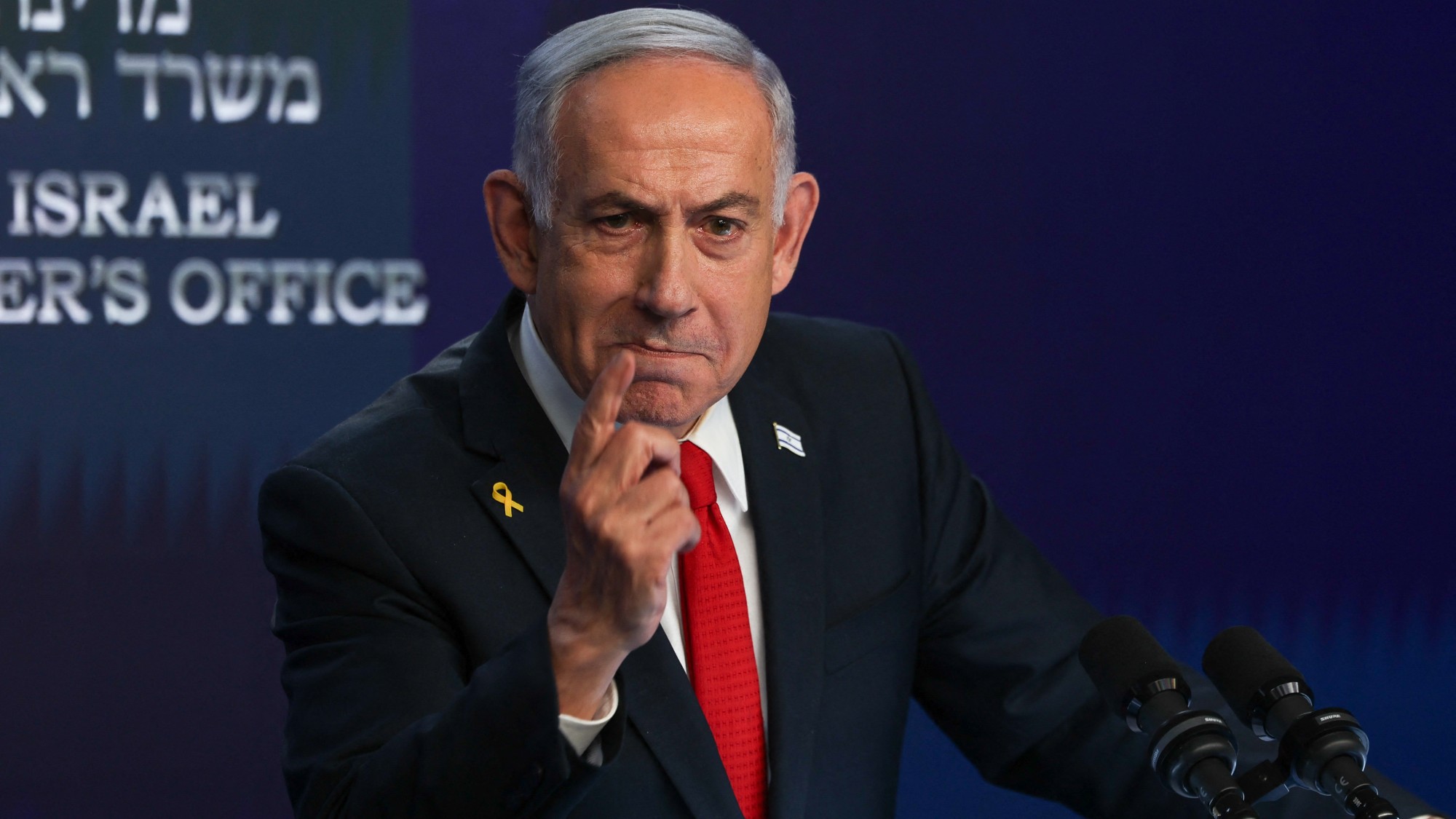 What happens if Israel attacks Iran?
What happens if Israel attacks Iran?TODAY'S BIG QUESTION Israel is 'ready to strike' and Tehran has plans for counterattacks against the US as nuclear talks appear deadlocked
-
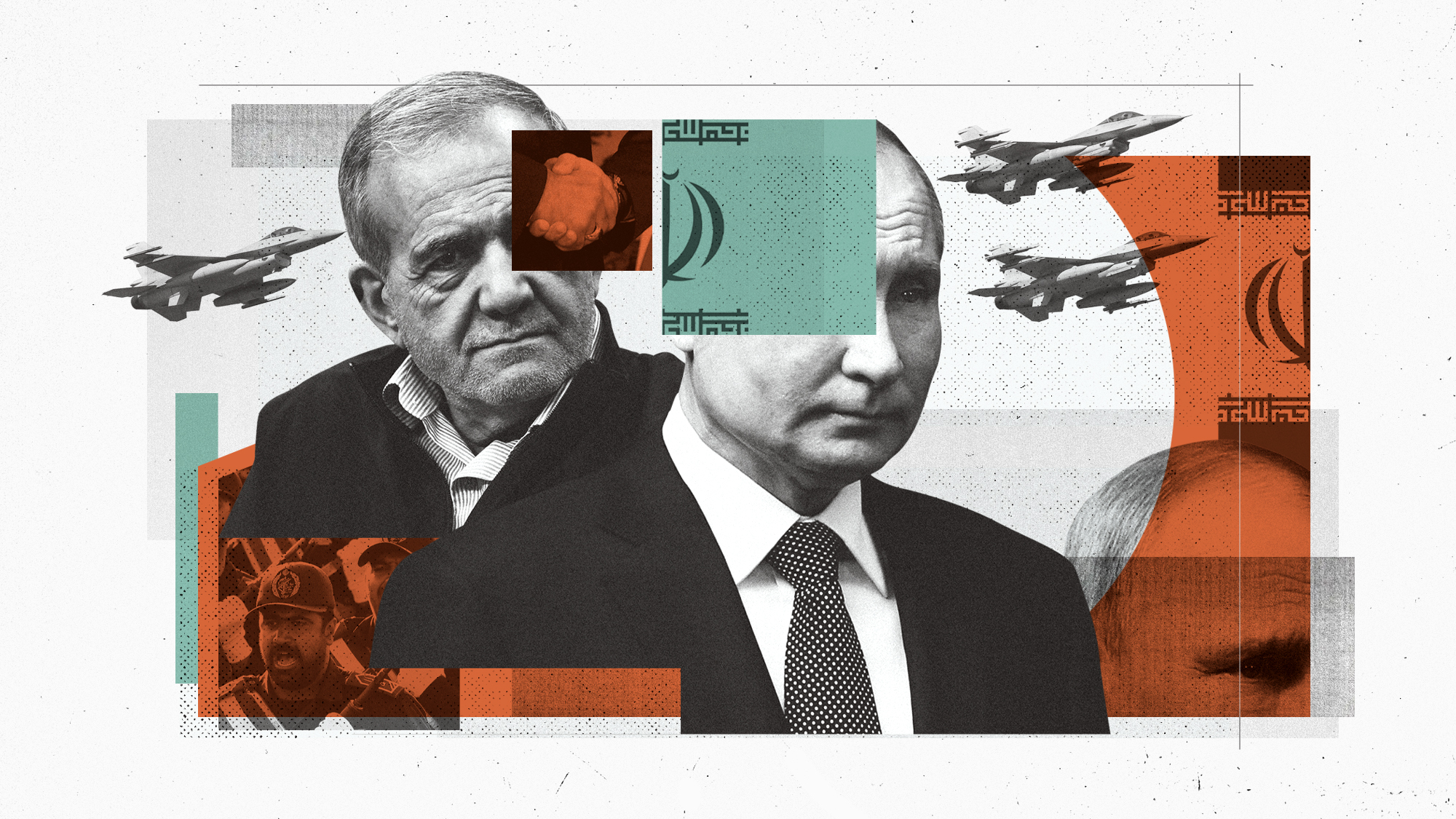 Russia and Iran 'up the ante' after meeting in Turkmenistan
Russia and Iran 'up the ante' after meeting in TurkmenistanThe Explainer Two nations talk up their closer ties but some in Tehran believe Putin 'still owes' them
-
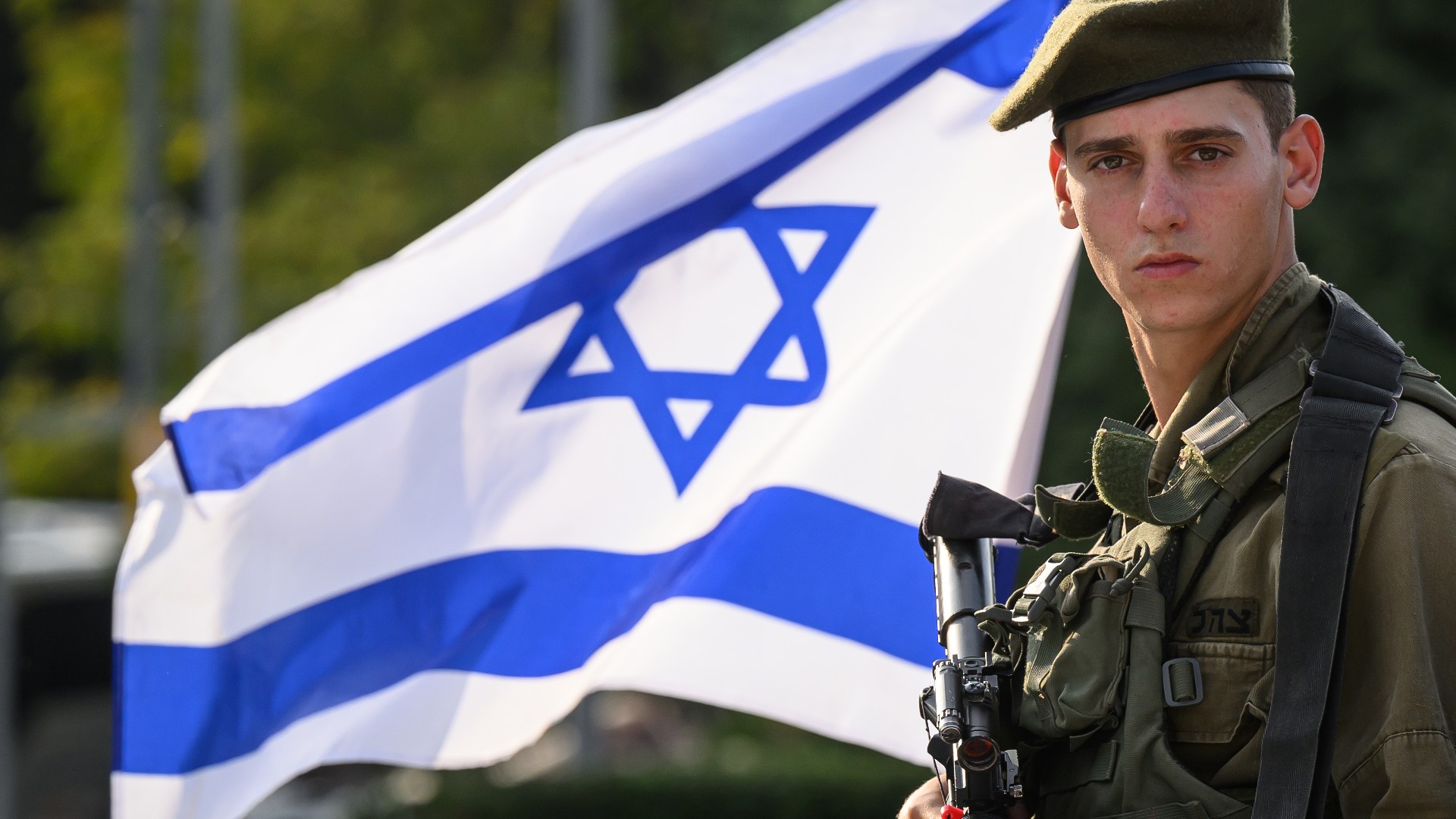 Israel's wars: is an end in sight – or is this just the beginning?
Israel's wars: is an end in sight – or is this just the beginning?Today's Big Question Lack of wider strategic vision points to 'sustained low-intensity war' on multiple fronts
-
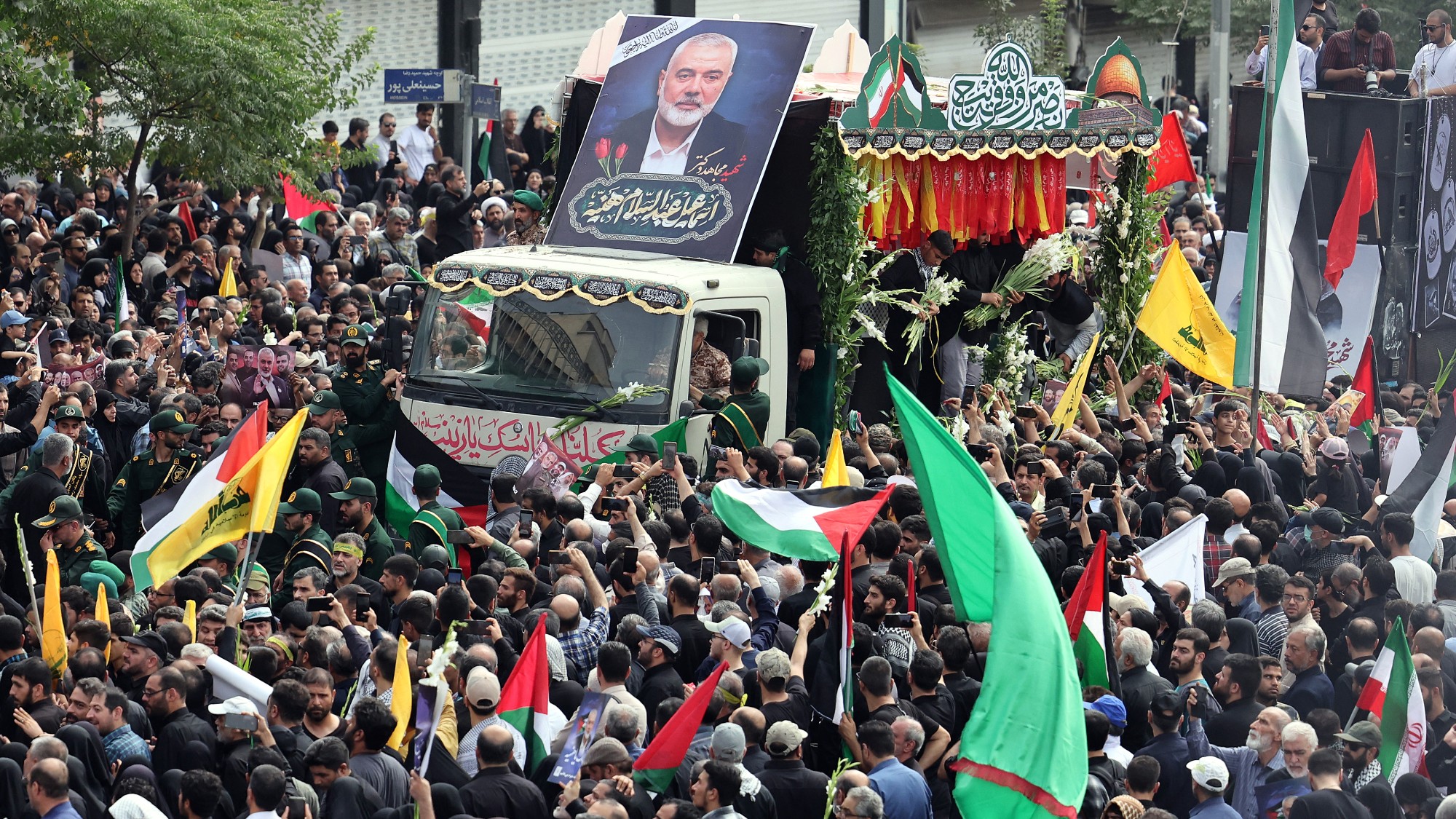 Iran and Israel: is all-out war inevitable?
Iran and Israel: is all-out war inevitable?Talking Points Tehran has vowed revenge for assassinations of Hamas and Hezbollah leaders, but Gaza ceasefire could offer way out